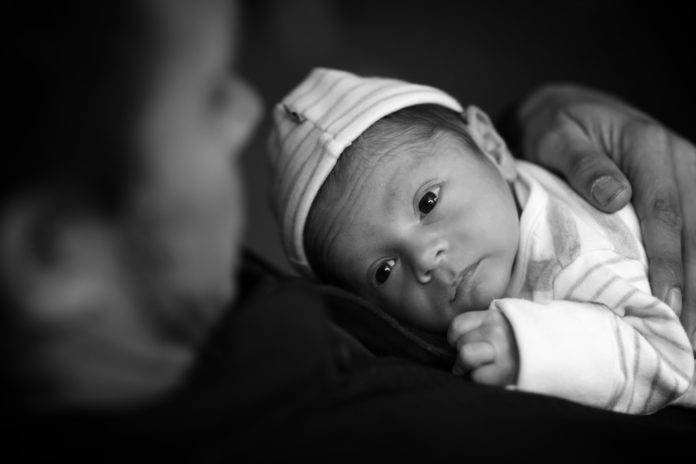Involving parents as direct carers, including doing ward rounds and taking children’s temperature, improves weight gain of preterm infants in intensive care and reduces parent stress and anxiety.
Parents whose newborns are receiving intensive care are often perceived as visitors and report high levels of stress and anxiety. However, a new randomised trial shows that actively involving parents in the care of their newborns – from giving oral medicine, feeding, taking their temperature, to being actively involved in ward rounds – helps improve the wellbeing of both children and parents.
The international trial, published in The Lancet Adolescent and Child Health Journal finds that a programme of integrated family care in neonatal intensive care units (ICU) led to improved weight gain among preterm infants, better breastfeeding rates, and reduced parental stress and anxiety, compared to standard care.
The authors say that the findings challenge the existing dogma that considers parents as peripheral to their infants’ care in the ICU. They add that the improvement in weight and breastfeeding rates and parental wellbeing might also translate into long-term neurodevelopmental benefits for children, although further research is needed to examine this question.
The improvement in weight and breastfeeding rates and parental wellbeing might also translate into long-term neurodevelopmental benefits for children
“How care is provided to the family, not just the infant, has a positive effect on the wellbeing of both infant and family. Weight gain, breastfeeding and reduced parental stress and anxiety are all associated with positive neurodevelopmental outcomes, suggesting that integrating parents into the care of infants at this early stage could potentially have longer-term benefits,” says Dr Karel O’Brien, Department of Paediatrics, Sinai Health System, Toronto, Canada.
In the trial, 26 neonatal intensive care units in Canada, Australia, and New Zealand, were randomly assigned to either implement the Family Integrated Care (FICare) programme (14 units), or standard care (12 units). Each group involved 895 and 891 preterm infants respectively, all born at 33 weeks gestation or earlier.
Although neonatal intensive care units promote family-centred care, most units do not integrate the family as primary care givers. Hospitals eligible to take part in the FICare group had to provide families with a rest space and sleeping room intended for parental use only, comfortable reclining chairs at the bedside, free parking, and have nurses trained in family support.
Parents had to commit to spending at least 6h per day, 5 days a week, at the infant’s bedside, and to attend education sessions for at least 3 weeks. Parents delivered tasks such as bathing, feeding, dressing, diaper changing, giving oral medication, and taking temperature, and were encouraged to take part in clinical decisions, ward rounds, and to chart their infant’s growth and progress. Parents were also informed of tasks they could not do, such as adjusting oxygen levels.
At 21 days, infants in the FICare group had put on more weight and had higher average daily weight gain (26.7g vs 24.8g), compared to the standard care group. Additionally, parents in the FICare group had lower levels of stress and anxiety, compared to the standard care group. Once discharged, mothers were more likely to breastfeed frequently (6 feeds or more a day), compared to the standard care group (70% [279/396] vs 63% [394/624]). There were no differences in rates of mortality, duration of oxygen therapy or hospital stay.
The authors note that the weight gain, while small, compares favourably with the reported effects of specific feeding interventions. Weight gain in preterm infants is an important marker of positive neurodevelopment, pointing to the possibility of longer term positive effects for infants. The authors add that reduced stress and anxiety may also help improve parents’ connection with their infants.
“Parents are too often perceived as visitors to the intensive care unit. Our findings challenge this approach and show the benefits to both infants and their families of incorporating parents as key members of the infant’s health care team, and helping parents to assume the role of primary caregiver as soon as possible,” says Dr O’Brien.
The authors note that the parents in the FICare group were asked to make a considerable time commitment, which may have biased the selection of participants. However, they note that the findings remained similar regardless of family demographics.
Writing in a linked Comment, Chris Gale, Chelsea and Westminster Hospital, Imperial College London, says: “O’Brien and colleagues have achieved a remarkable feat, robustly testing FICare in an international, cluster-randomised controlled trial. High-quality cluster trials are sorely needed to investigate the many organisational uncertainties that plague neonatal care. The beneficial effects of FICare that O’Brien and colleagues report, particularly in relation to parental stress and anxiety and breastfeeding, are important – but they need to be interpreted cautiously in light of the risk of bias inherent in the trial. Fundamentally, however, in the absence of detriment, parent choice could be the prime consideration for neonatal units considering implementing FICare.”


